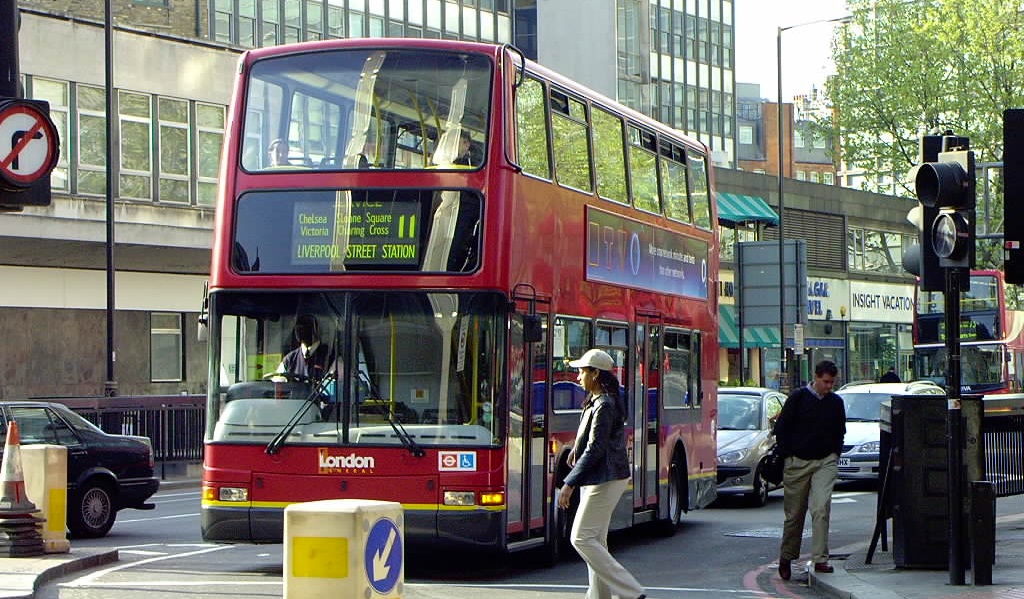When I was campaigning to be selected as the Labour candidate for the London mayoral election, a bus driver friend rang me up about a concern. He told me that the New Routemaster for London buses were causing real safety concerns because they were no longer operating as hybrids but were entirely dependent on their diesel engines. This made them to behave erratically, stalling unexpectedly and sometimes creeping forward.
The underlying cause was that the batteries provided little or no charge and the buses were not designed to be operating solely with the diesel engines. I contacted several drivers who all reported that few, if any, of their buses were running properly. They had complained but neither management nor the union took the issue seriously. One driver had even been sacked for repeatedly refusing to take what he felt was a dangerous vehicle out on the road.
As both a journalist and putative politician, I did the obvious thing, tipping off the local BBC TV news and issued a press release. The effect, according to my now numerous driver friends, was almost instant. The bus company started replacing the batteries and I got several emails from happy drivers whose buses are now working properly.
All this, though, was fortuitous as it was only happened because a driver was prepared to contact me risking his job and livelihood. Now, thankfully, in London at least, drivers will no longer have to resort to their journalistic contacts. Transport for London has signed up to the CIRAS (Confidential Incident Reporting and Analysis System) which previously was only used by the rail industry. In future, therefore, drivers and other bus staff will be able to ring the CIRAS helpline and report incidents knowing that they can do so as whistleblowers without fear of recrimination.
This initiative, the first time CIRAS has been extended to road vehicles, was not the result of sudden enlightenment on the part of TfL. Quite the opposite. It took a couple of years of effort by businessman Tom Kearney, who after being nearly killed after being struck by a wing mirror of a 73 bendy bus in Oxford Street in December 2009, has campaigned tirelessly for improved bus safety. It is as the result of his campaign that TfL now publishes quarterly statistics on incidents involving its buses and that it made subscription to CIRAS mandatory for its bus contractors from the start of this year. Moreover, campaigning in tandem with TfL bus crash survivors and bus drivers, Kearney’s efforts led to the announcement on Feb 1 that TfL was launching a ‘world leading’ bus safety programme with measurable contracted targets for safety, collision reduction and transparency about operational safety policy.
CIRAS is not new. It started as far back as 1996 in Scotland and became mandatory for the whole industry in 2001. Since then, the railways have become remarkably safe. There have been only two accidents on the network that have killed passengers since then and, in fact, on Feb 23 the industry will celebrate nine years without a fatal crash since the Grayrigg derailment of a Virgin train. Now of course there is not necessarily any correlation. Many other factors have contributed to this improvement but it is highly probable that the CIRAS system has played some part.
But here’s the rub. If this is OK for London, why not for the rest of the country? Or indeed the coaches that come into London? So far there has been resistance from the bus companies. They have signed up to CIRAS in London only because they are required to do so. Indeed, many of these same companies such as Abellio and Go-Ahead have long been required to be part of the system for their rail franchises. So why not simply sign up for their regional bus fleets and their coach services?
CIRAS is not only good for safety, it is good for business. As Kearney put it to me, ‘I hope that we’ll soon see the day where any public or private contractor of transport services would see CIRAS as a mandatory requirement to give confidence that its operational safety systems are in order. The rule should be: no CIRAS. no contract’.
Reading the CIRAS newsletter on its website is a salutary experience. There are clearly many instances where an anonymous phone call has saved lives or at least injuries. CIRAS announced last year that it is open to HGV and coach operators. Bus companies carry millions of passengers daily and every incident tarnishes their reputation. Improved safety saves money, gives confidence to passengers and prevents tragedies. So what is there not to like? And if saving lives is not enough incentive, there is always Mammon. I am sure that shareholders will be glad of a reduction in incidents that could cost the company millions, especially as pressure is mounting given greater public concern about safety and increased enforcement of health and safety legislation.
